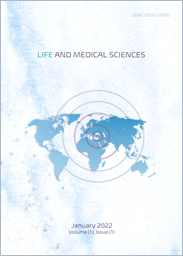
Life and Medical Sciences
Yazarlar: Marian MUSE OSMAN, Mukhtaar ABDULLAHI ALI, Ahmed Muhammad BASHIR, Faduma NUR ADAN, Hilmi Erdem SÜMBÜL, Muhammad Hassan SHERANI, Mustafa Kemal Emirhan SAĞLIK, Fatih ŞAHİNER
Konular:-
DOI:10.54584/lms.2022.9
Anahtar Kelimeler:Malaria,Rapid diagnostic tests,Elimination,Plasmodium falciparum.
Özet: Malaria transmitted mainly by mosquito vectors (female Anopheles species) is one of the leading causes of death from infectious diseases in the world. In the fight against malaria, some countries have achieved elimination success with national health policies. However, the efforts of national organizations in the fight against malaria are insufficient in low-income countries and the support of international organizations is needed as a part of the global malaria struggle. Somalia is an easternmost African country, located in the neighboring region which has the highest rates of malaria cases and malaria-related deaths globally, is at risk of malaria epidemics due to its fragile infrastructure. This study was carried out in a tertiary care hospital in Mogadishu and involved the retrospective analysis of 54,748 test results of malaria from 2015 to 2019. The rate of malaria cases tended to decrease over the years, being determined as 4.95%, 0.39%, 0.15%, 0.13%, and 0.1% for 2015, 2016, 2017, 2018, and 2019, respectively. A total of 152 malaria cases were detected, and the incidence of infection was found to be significantly higher in men (0.41%; 107/26,231) than in women (0.16%; 45/28.517) (p<0.0001). Standard microscopy and the CareStart Malaria Pf/PAN (HRP2/pLDH) Ag Combo RDT test, which meets the criteria set for rapid diagnostic tests recommended by the World Health Organization, were used for the diagnosis of malaria infections, and the parasite species was identified as Plasmodium falciparum in 36.4% (55/151) of the cases. We also observed that malaria cases occurred every month of the year, but there was a remarkable increase in the number of cases for the period between October 2015 and January 2016. In conclusion, our study data show that malaria cases tend to decrease in Somalia as a result of the effective struggles of the national and international health institutions. However, the support of international organizations remains important in achieving the goal of malaria elimination and sustainable struggle with the undesirable effects of the disease in Somalia.